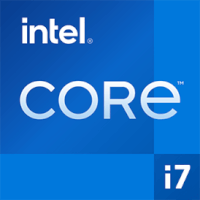

| AMD Epyc 7501 | Intel Core i7-5750HQ | |
| 2.00 GHz | Frequenz | 2.50 GHz |
| 3.00 GHz | Turbo (1 Kern) | 3.40 GHz |
| 2.60 GHz | Turbo (alle Kerne) | 3.10 GHz |
| 32 | Kerne | 4 |
| Jawohl | Hyperthreading? | Jawohl |
| Nein | Übertakten? | Nein |
| normal | Kernarchitektur | normal |
| no iGPU | GPU | Intel Iris Pro Graphics 6200 |
| DirectX-Version | 12 | |
| max. zeigt an | 3 | |
| DDR4-2666 | Speicher | DDR3-1866 |
| 8 | Speicherkanäle | 2 |
| max. Speicher | ||
| Jawohl | ECC | Nein |
| -- | L2 Cache | -- |
| 64.00 MB | L3 Cache | 6.00 MB |
| 3.0 | PCIe-Version | 3.0 |
| 128 | PCIe lanes | 16 |
| 14 nm | Technologie | 14 nm |
| SP3 | Socket | BGA 1364 |
| 180 W | TDP | 47 W |
| AMD-V, SVM | Virtualisierung | VT-x, VT-x EPT, VT-d |
| Q3/2017 | Veröffentlichungsdatum | Q2/2015 |
| mehr Details anzeigen | mehr Details anzeigen |
Cinebench R15 ist der Nachfolger von Cinebench 11.5 und basiert ebenfalls auf der Cinema 4 Suite. Cinema 4 ist eine weltweit eingesetzte Software zur Erstellung von 3D-Formularen. Der Single-Core-Test verwendet nur einen CPU-Kern, die Anzahl der Kerne oder die Hyperthreading-Fähigkeit zählen nicht.
Cinebench R15 ist der Nachfolger von Cinebench 11.5 und basiert ebenfalls auf der Cinema 4 Suite. Cinema 4 ist eine weltweit eingesetzte Software zur Erstellung von 3D-Formularen. Der Multi-Core-Test umfasst alle CPU-Kerne und nutzt einen großen Vorteil des Hyperthreading.
Die theoretische Rechenleistung der internen Grafikeinheit des Prozessors mit einfacher Genauigkeit (32 Bit) in GFLOPS. GFLOPS gibt an, wie viele Milliarden Gleitkommaoperationen die iGPU pro Sekunde ausführen kann.
Geekbench 3 ist ein Cross-Plattform-Benchmark, der den Systemspeicher stark beansprucht. Ein schneller Speicher wird das Ergebnis stark pushen. Der Single-Core-Test verwendet nur einen CPU-Kern, die Anzahl der Kerne oder die Hyperthreading-Fähigkeit zählen nicht.
Geekbench 3 ist ein Cross-Plattform-Benchmark, der den Systemspeicher stark beansprucht. Ein schneller Speicher wird das Ergebnis stark pushen. Der Multi-Core-Test umfasst alle CPU-Kerne und nutzt einen großen Vorteil des Hyperthreading.
Cinebench 11.5 basiert auf der Cinema 4D Suite, einer beliebten Software zum Generieren von Formularen und anderen Dingen in 3D. Der Single-Core-Test verwendet nur einen CPU-Kern, die Anzahl der Kerne oder die Hyperthreading-Fähigkeit zählen nicht.
Cinebench 11.5 basiert auf der Cinema 4D Suite, einer beliebten Software zum Generieren von Formularen und anderen Dingen in 3D. Der Multi-Core-Test umfasst alle CPU-Kerne und nutzt einen großen Vorteil des Hyperthreading.
Einige der unten aufgeführten CPUs wurden von CPU-Benchmark einem Benchmarking unterzogen. Die meisten CPUs wurden jedoch nicht getestet und die Ergebnisse wurden nach einer geheimen proprietären Formel des CPU-Benchmarks geschätzt. Als solche spiegeln sie die tatsächlichen Werte der Passmark-CPU-Markierung nicht genau wider und werden nicht von PassMark Software Pty Ltd.
Die Kryptowährung Monero verwendet seit November 2019 den RandomX-Algorithmus. Dieser PoW-Algorithmus (Proof of Work) lässt sich nur mit einem Prozessor (CPU) oder einer Grafikkarte (GPU) effizient berechnen. Der CryptoNight-Algorithmus wurde für Monero bis November 2019 verwendet, konnte aber mit ASICs berechnet werden. RandomX profitiert von einer hohen Anzahl an CPU-Kernen, Cache und einer schnellen Anbindung des Speichers über möglichst viele Speicherkanäle